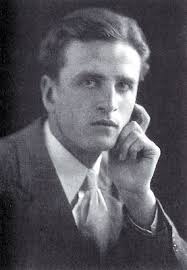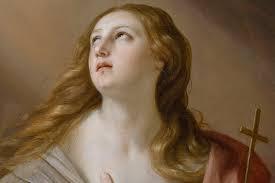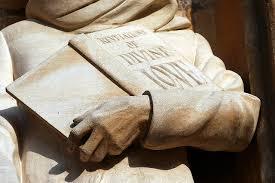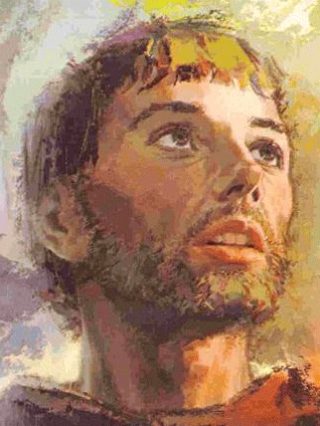Lectio Divina
Into the Mystic
Tell me, if you were in St Conleth’s Park, Newbridge or even Croke Park and you stood up to sing the national anthem could you do it? Would you know all the words and would you know what they actually mean? Certainly I’d be hard-pressed to explain what all the words in Irish mean though I like to think I have the gist of it.
I want to suggest, that it is often like that for many of us when we hear the readings at mass or if we occasionally open the bible at home. We’ve sort of heard it all before and it makes sense up to a point but before we’ve had a chance to let it sink in or we nod off, we are at the sermon or finding that we are standing up to recite the “I Believe”.

In a previous article I spoke about how Fr Thomas Keating among others had helped to revive some ancient Christian mystical practices. One of these, Lectio Divina or Divine Reading is a method of relating to the readings in the Bible that take us beyond passive reception or just having a nodding acquaintance with the texts. Scripture is often compared to eating food for nourishment as in the words of Jesus: “Man shall not live by bread alone but by every word that comes from the mouth of God”(Luke 4:4). But what if we only half digest this Word? We end up getting only a fraction of the benefit and could be in danger of what we might call spiritual malnourishment. This is where Lectio Divina can help. Here is how it works.
Lectio Divina
Lectio Divina is a Latin term that as we’ve said simply means ‘divine reading’. It is a way of reading the scriptures whereby we gradually let go of our own agenda and open ourselves up to what God wants to say to us through a four-step process.
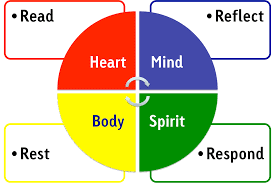
Step 1 (Leggere or Reading)
Here we read a short piece of scripture slowly and thoughtfully, to allow it to sink in.
Step 2 (Meditare or Thinking)
Now we choose perhaps a phrase or even one word from the passage and think about what we have read, with an openness to what God wants to communicate through it.
Step 3 (Oratio or Response)
Here we leave our thinking aside and simply let our hearts speak to God. This may or may not involve words but there is normally a kind of emotional response to what we have read.
Step 4 (Contemplatio or Contemplation)
In this final stage we let go of our thoughts and words of prayer. We simply rest wordlessly in the Word of God. The emphasis is on listening rather than talking to God. This stage most resembles what we now often understand as meditation, a journey into stillness beyond thoughts.
Let’s give it a try. Here are a few lines from Matthew’s Gospel (4:18-19):
As Jesus walked along the shore of Lake Galilee, he saw two brothers who were fishermen, Simon (called Peter) and his brother Andrew, catching fish in the lake with a net. Jesus said to them. “Come with me. And I will teach you to catch men” At once they left their nets and went with him.
At first glance in Step 1 we read it and think “pretty straightforward”. We might figure out that when Jesus says ‘men’ he really intends men and women or everyone. No point in being too literal minded which can cause us to be too rigid in our thinking. It could be useful to read it again slowly to take in the details.
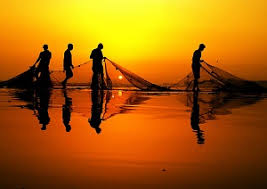
Now in Step 2 it’s up to you to zoom in and focus on a particular phrase or word that seems to be calling for your attention. As I do it, the phrase that stands out for me is: “At once they left their nets”. As I think or mull over this phrase it strikes me that it is not just fish that get caught in nets. Many of us get caught in the net of endless preoccupation with activities, the net of our thoughts which might lead us to worry or the net of distractions such as our phones, tablets, TVs etc. Could it be that there is a message here for us to leave aside our distractions for a while and focus on the important stuff?
In Step 3 we spend time responding to the message or the realisation or insight we have just had. Maybe there is an emotional response when I realise how much I allow my thoughts to distract me from being fully present to what is going on around me. Maybe my thoughts put me out of touch with myself.
In Step 4 then, we just deepen into Presence perhaps through noticing the breath or sensations in the body, trusting in God’s Word to nourish us in a way that goes beyond words. This step is very like Centring Prayer. It’s all about being receptive, a kind of deep listening to the Holy Spirit.
Let’s give it a try. Here are a few lines from Matthew’s Gospel (4:18-19):
As Jesus walked along the shore of Lake Galilee, he saw two brothers who were fishermen, Simon (called Peter) and his brother Andrew, catching fish in the lake with a net. Jesus said to them. “Come with me. And I will teach you to catch men” At once they left their nets and went with him.

